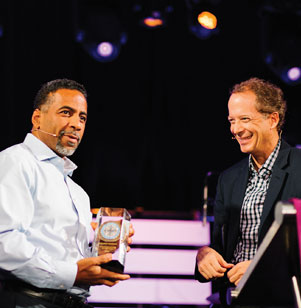by James M. Garretson
Read part one of this post here.
Formation of a Christian worldview is ultimately rooted in a Christian’s relationship with Christ. The bible teaches that our nature, by virtue of physical birth, is one of spiritual death and alienation from God. Any parent knows that they do not need to teach their children to do wrong; even the youngest child can act in a sinful manner by instinct and disposition. Sinful behavior only multiplies throughout our lives.

Sin is both a condition and an activity. In the words of a sixteenth century Protestant catechism, “sin is any want of conformity to, or transgression of, the law of God.” Every part of our nature has been infected by sin; our minds are described by scripture as darkened and our consciences hardened in our natural state. Mankind, scripture announces, is dead in sin and trespasses.
But when a person is born again, a new nature is created by the Holy Spirit. As the Apostle Paul notes, if a person is “in” Christ, the old has passed and the new has come. In other words, every believer is a “new creature” in Christ. Their former sinful nature has been replaced by a new dispositional complex managed by the Holy Spirit and nurtured through such means as the reading and preaching of the word of God, prayer, fasting, and participation in the sacraments of baptism and the Lord’s Supper. By such “means” the believer matures in the grace and knowledge of Christ.
Just as it is knowledge of the truth that sets us free, so too Christian growth in formation of a is likewise rooted in a maturing understanding of what it means to love the Lord God with all our heart, mind, soul, and strength. In the Apostle Paul’s terms, we learn to have “the mind of Christ.” In a related passage found in the book of Romans we are encouraged to “be transformed by the renewing of our minds.”
Similar thoughts are found in other New Testament books. The book of Philippians speaks about our heavenly citizenship; union with Christ not only gives us eternal life and a new identity, but also establishes a new context for how we are to think about ourselves. Kingdom priorities replace worldly values; kingdom ethics frame the believer’s behavior in seeking to bring every area of life under Christ’s lordship.
In this respect, formation of a Christian worldview begins with formation of our new nature in regeneration, or the new birth. But cultivation of a Christian mindset remains the work of a lifetime as we grow in maturity and wisdom, learning how to choose between the good and the better as we seek to honor Christ in thought, word, and deed.
Has God revealed his will on a particular matter? If so, am I willing to be obedient to his standards for how I am to live before him and with my neighbor? Love, of course, must be at the heart of my response. “We love because He first loved us.” “If you love me,” Jesus said, “you will keep my commandments.” God’s standards for holy living restrict sin and enable godly character to flourish. Obedience to God’s revealed will enables the believer to find their greatest delight and satisfaction in God himself—what some have described as a “beatific vision.”
Where explicit directive is absent, inference based on scriptural principle is appropriate in how we learn to work out our sanctification. In the Old Testament, apodictic law (clear directives such as do or don’t do this) were illustrated in numerous casuistic examples (case law illustrating application of the larger principle). For example, “if then” laws for finding and returning your neighbor’s lost ox in ancient Israel carry over in principle with discovery of a lost wallet on your street today. “Finders keepers” isn’t the Christian way; effort to restore your neighbor’s property is the expectation! Life is a gift from God, and stewardship of his resources to his glory and on behalf of our neighbor’s needs marks the morality to be modeled in formation of a Christian outlook on how we are to live life before God and men.
Cultivation of a Christian worldview will always seek to integrate patterns of biblical faith into every area of life—whether in formation of a Christian approach to historiography, parenting, or plumbing. However, in our efforts to promote cultural renewal in a manner consistent with biblical norms, even these initiatives will be eclipsed by the renewal that comes with the new heavens and earth mentioned in the book of Revelation. In the language of Handel’s Messiah, the kingdoms of earth will become the kingdom of our God and King!
While transformation and renewal of the present world order in compliance with biblical norms is our present obligation, an even larger renewal lies before us in the restoration, perfection, and glorification of all things consistent with the original design God envisaged in the first creation at the beginning of time. Eternity has its own transformation the likes of which no eye has yet seen or ear yet heard; life free of the remaining vestiges of sin, sorrow, death and evil, and even Satan himself, where the glory of the crucified and resurrected Lamb is the light of the redeemed and their hope of glory unending is our future and destination. Today we know in part and see in part; one day, we will see him (Christ) as he truly is and share in the glory which was his from eternity past.
At the very least, our efforts at formation of a Christian worldview, that is, a holistic and unified way of thinking about all of life being lived to God’s glory and under the Lordship of Christ, must be rooted in these elements in order that Christ remains central in exercise of his dominion over our lives. Worldviews can exist apart from Christ; but in a Christian worldview, Christ must remain central and foundational for all we think, say, and do.
 Jim Garretson led Christian Union’s ministry at Harvard Law School from 2013-2017.
Jim Garretson led Christian Union’s ministry at Harvard Law School from 2013-2017.



